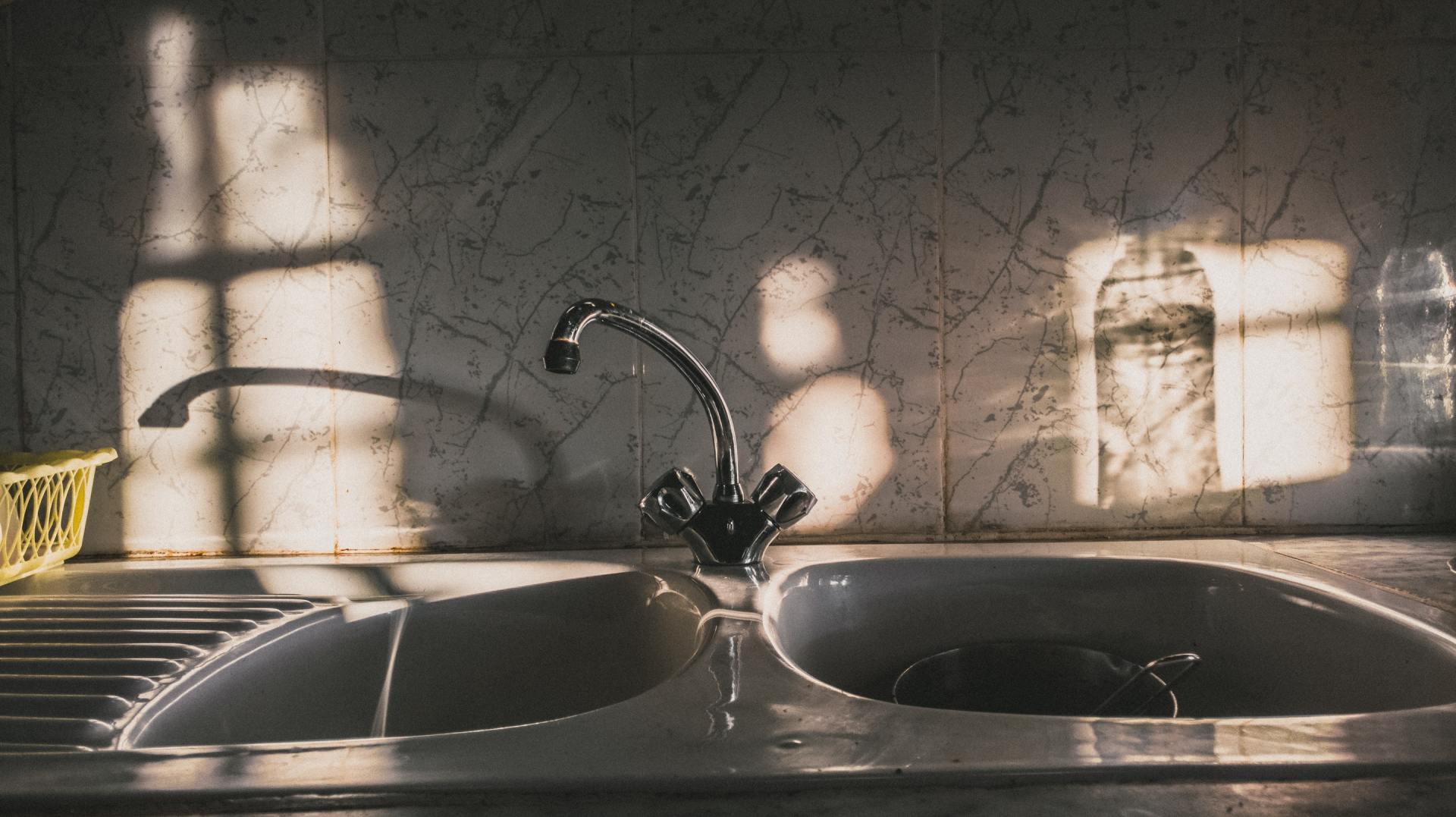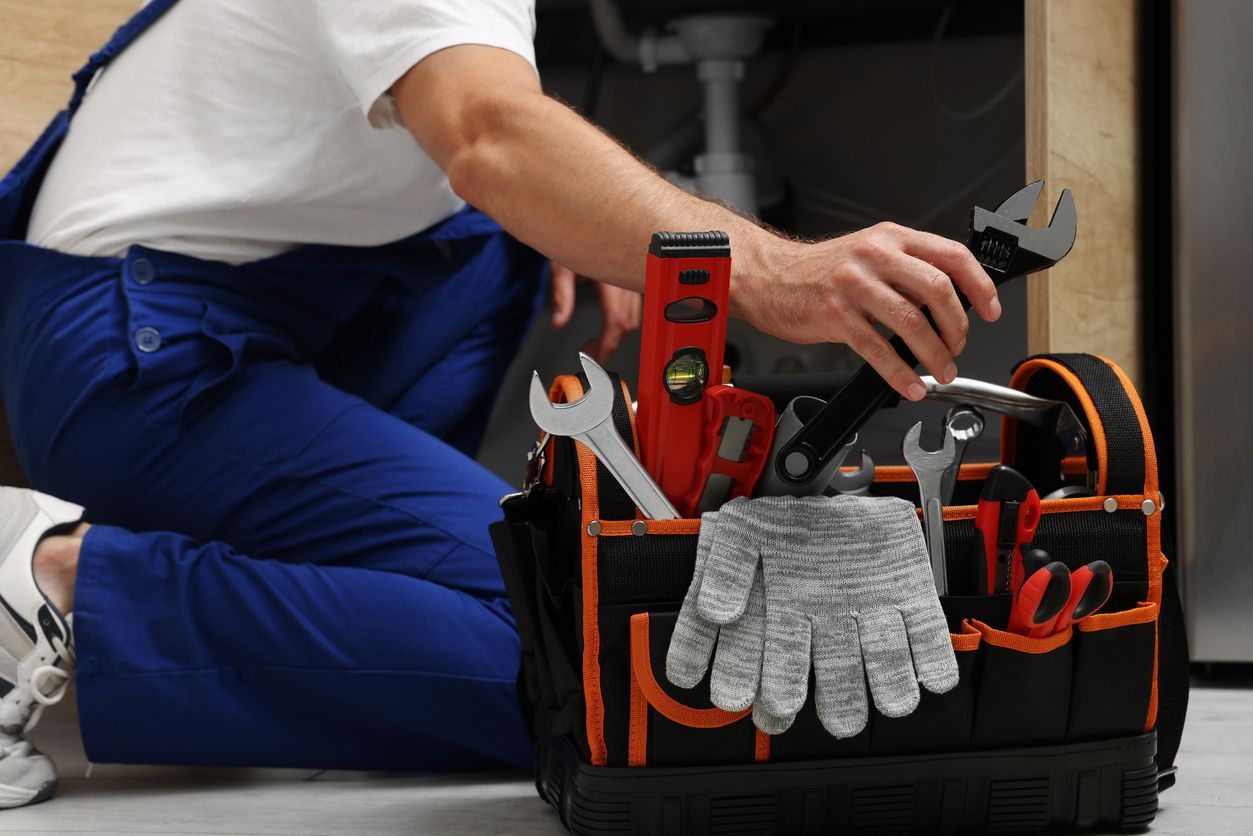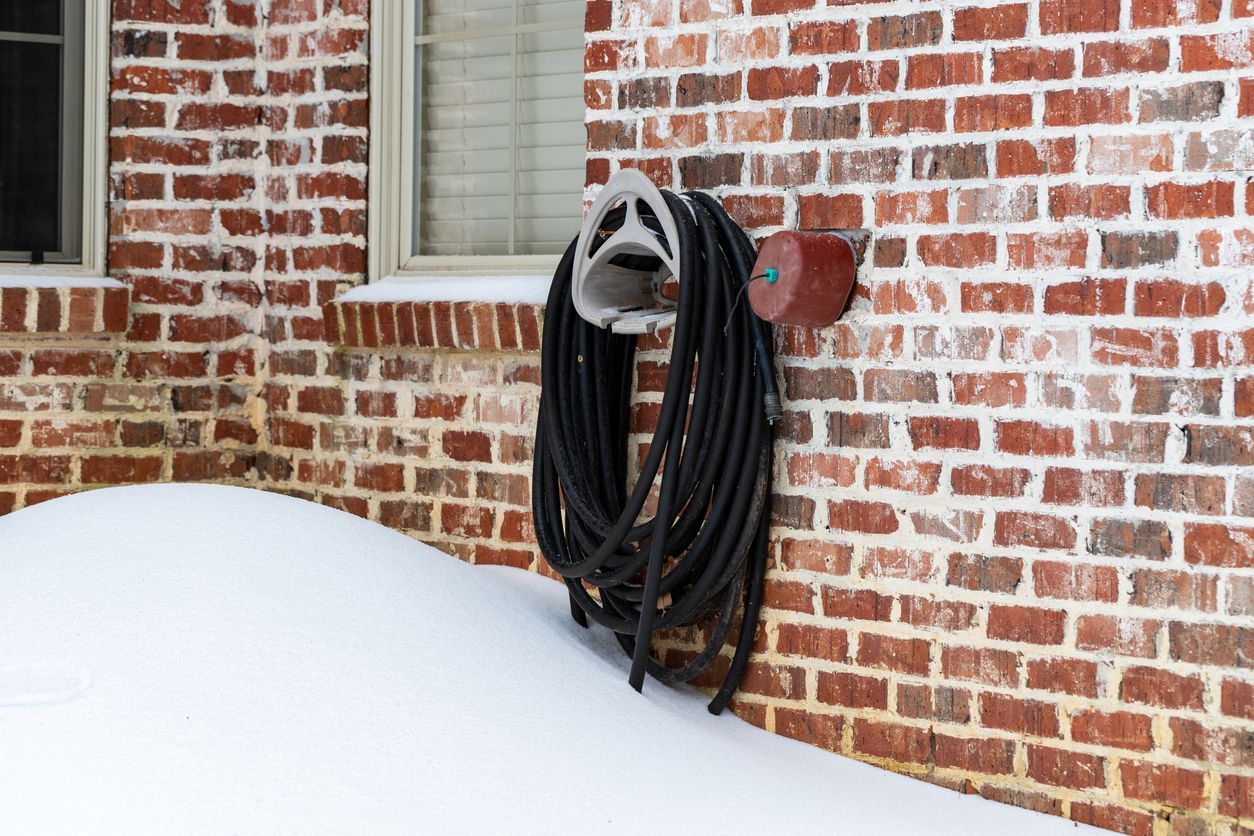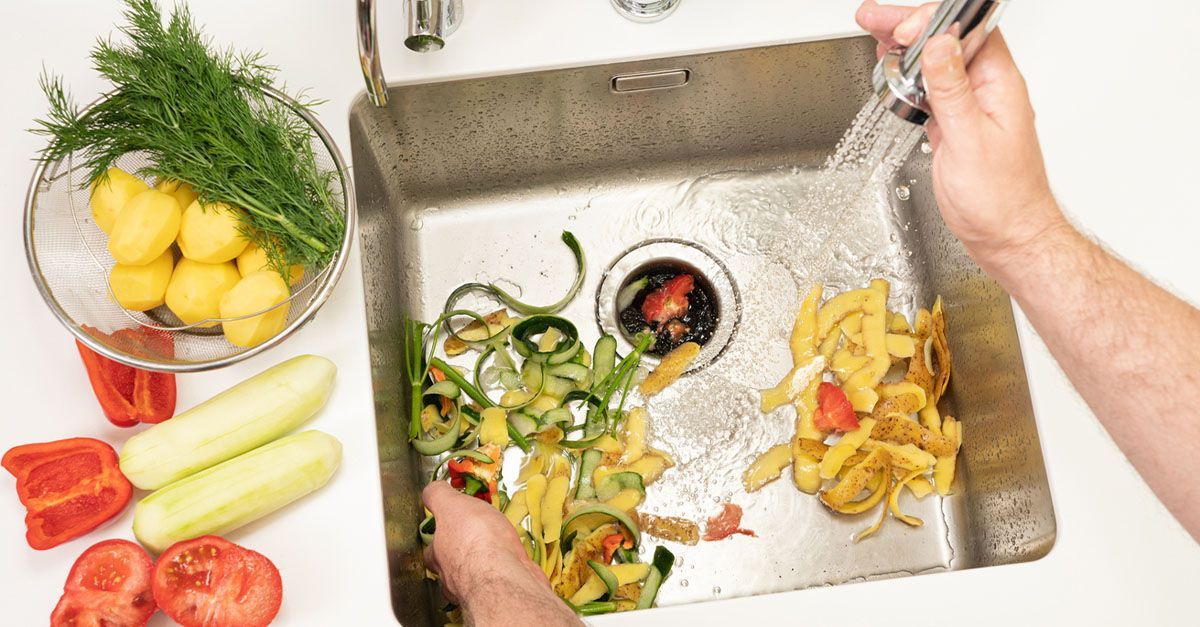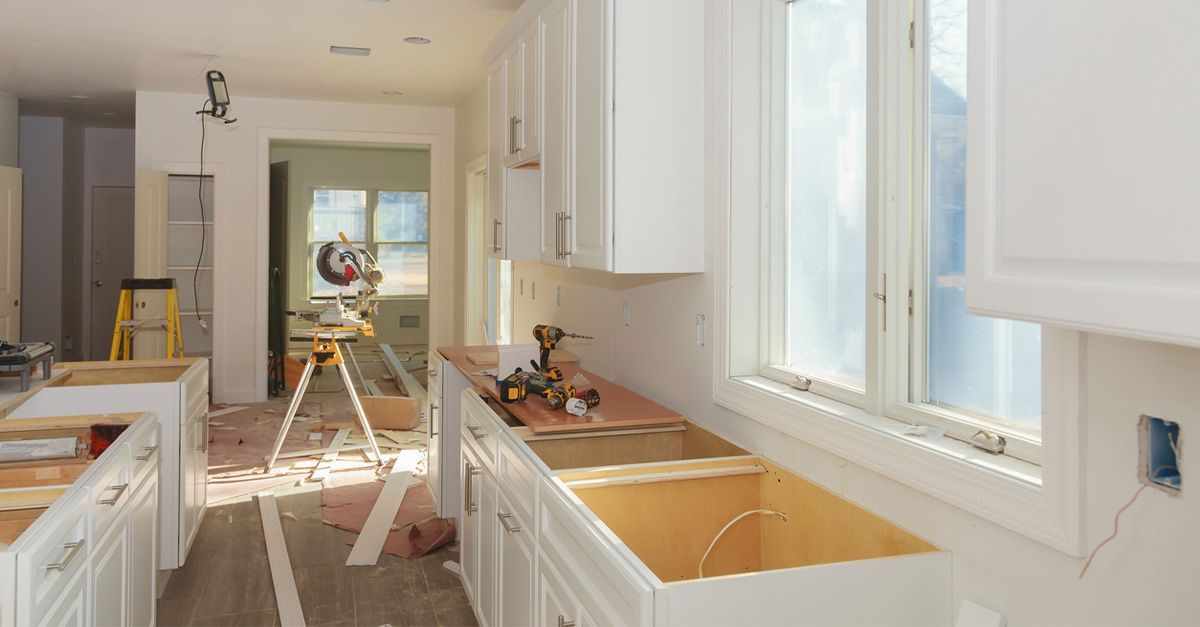The Pros and Cons of Water Filters
debbie • February 13, 2020
Local water treatment facilities help keep our water clean and sanitary. But with news of lead contamination in some areas, as well as sediment, chemicals, and micro-organisms that can be transported through our faucets, some people feel more confident in the water they drink when it’s filtered. Not only can water filtration services
reduce contaminants, but they can also improve the taste of your water, and potentially help reduce the incredible amount of waste produced by disposable plastic water bottles. But what type of water filters are available in today’s market, and which one is best for you?
Whole House/Point of Entry Systems
As the name implies, point of entry water filtration systems are installed at the point where water enters the building. These systems remove bad tastes and odors before they are fed into your home, and may include water softeners to reduce hardness. Whole house systems are essential for homes using well water, as point of entry systems prevent many groundwater contaminants from entering your pipes. All water is filtered or treated, whether for drinking, laundry, bathing, cooking, or watering the lawn. The benefit to whole house filtration systems is that every faucet inside and outside the home delivers clean, safe water that tastes great. And, in addition to great tasting water, you also get filtered water going to your plumbing fixtures, which could mean fewer repairs in the long run. If the system uses filters, they’ll need to be replaced every few years, depending on the model.
Point of Use Water Filters
Point of use systems are installed at each point in the home where they’ll be used. Most consumers install these systems to filter water for drinking, cooking, or bathing. Tucked under a sink or behind a shower panel, point of use systems are compact and provide reliable filtration just before use. Point of use water filters are great for daily use, and they can be highly beneficial people with compromised immune systems. These systems are generally less expensive than whole house water filtration systems, but they do require more frequent filter replacements. If you are looking for a complete water filtration solution, install both point of entry and point of use systems, and enjoy safe, clean, great-tasting water everywhere in your home!
If you’re still a little cloudy on the topic, call Plumb Works Inc. for more information on water filters that fit your needs and your budget! We’ll help determine which water filtration system is right for you, and schedule a quick, convenient service to get it installed. Don’t wait, call today! 404-524-1825
Frequently Asked Questions about Water Filters

When running a business, plumbing might not be top of mind—until something goes wrong. A burst pipe, a backed-up drain, or a faulty water heater can disrupt operations, inconvenience customers, and lead to expensive repairs. Regular commercial plumbing maintenance helps prevent these issues, saving businesses time, money, and stress. But not all businesses have the same plumbing needs. Let’s take a look at why maintenance is crucial and what specific industries should focus on. Why Regular Maintenance Matters Neglecting plumbing maintenance can lead to serious problems, including: ✔ Unexpected Downtime – A plumbing emergency can halt operations, costing businesses revenue and productivity. ✔ Expensive Repairs – Small issues, like a slow drain, can escalate into costly repairs if left unchecked. ✔ Health & Safety Concerns – Leaks and water damage can lead to mold growth, contamination, and even structural damage. ✔ Regulatory Compliance – Many industries must meet health and safety standards for plumbing systems, especially with backflow testing . Backflow testing must be performed annually in the State of Georgia for all businesses that connect directly or indirectly to the public water supply. By scheduling routine maintenance, businesses can catch minor issues before they become major problems, ensuring smooth operations year-round. Industry-Specific Plumbing Needs Restaurants & Food Service For restaurants, hotels, and commercial kitchens, plumbing problems can be disastrous. A clogged grease trap or backed-up drain can lead to kitchen shutdowns and health code violations. Regular maintenance should include: Grease trap cleaning or new grease trap installation . Drain and sewer line inspections. Water heater checks for dishwashers and sinks. Healthcare & Medical Facilities Hospitals, dental offices, and clinics rely on clean water and functional plumbing for sanitation and patient care. Preventative maintenance in these spaces should focus on: Backflow prevention to ensure water quality. Regular pipe inspections to prevent leaks and contamination. Water heater maintenance for sterilization equipment. Office Buildings & Corporate Spaces Large office buildings see heavy restroom use, making plumbing upkeep essential. Common maintenance needs include: Checking for leaks in restrooms and breakroom sinks. Maintaining water pressure for multiple floors. Inspecting sewer lines to prevent backups. Retail & Shopping Centers Customer restrooms, employee break areas, and utility sinks are all essential in retail spaces. Routine checks should include: Leak detection in public restrooms (especially for Mom & Pop shops in metro Atlanta with 1-2 bathrooms on site.) Water heater maintenance for stores with in-house cafés. Ensuring floor drains are clear to prevent flooding. Industrial & Manufacturing Facilities Factories and warehouses use plumbing for both sanitation and production processes. Preventative maintenance should focus on: Inspecting high-use pipes for corrosion. Checking for leaks in chemical or waste disposal systems. Ensuring emergency eyewash stations and safety showers function properly. Places of Worship Churches, synagogues, mosques, and other places of worship often have large gatherings that rely on the plumbing functioning correctly. With your patrons in attendance for long periods, on-site kitchens, and regular community events, regular maintenance is essential and should include: Checking restrooms for leaks, clogs, and proper water pressure. Inspecting and maintaining water heaters for kitchens and fellowship halls. Ensuring baptismal fonts and other specialty plumbing features are in good working order. Keeping sewer and drainage systems clear to accommodate large services and events. Schedule Commercial Plumbing Maintenance With Plumb Works A proactive approach to commercial plumbing maintenance saves businesses from expensive surprises. Scheduling routine inspections, cleaning drains, and keeping plumbing systems in top shape ensures smooth operations and regulatory compliance. If you own or manage a commercial property, don’t wait for a plumbing emergency. Invest in regular maintenance to protect your business, employees, and customers. Contact Plumb Works today to schedule a service or set up a custom maintenance plan that fits your industry’s needs.
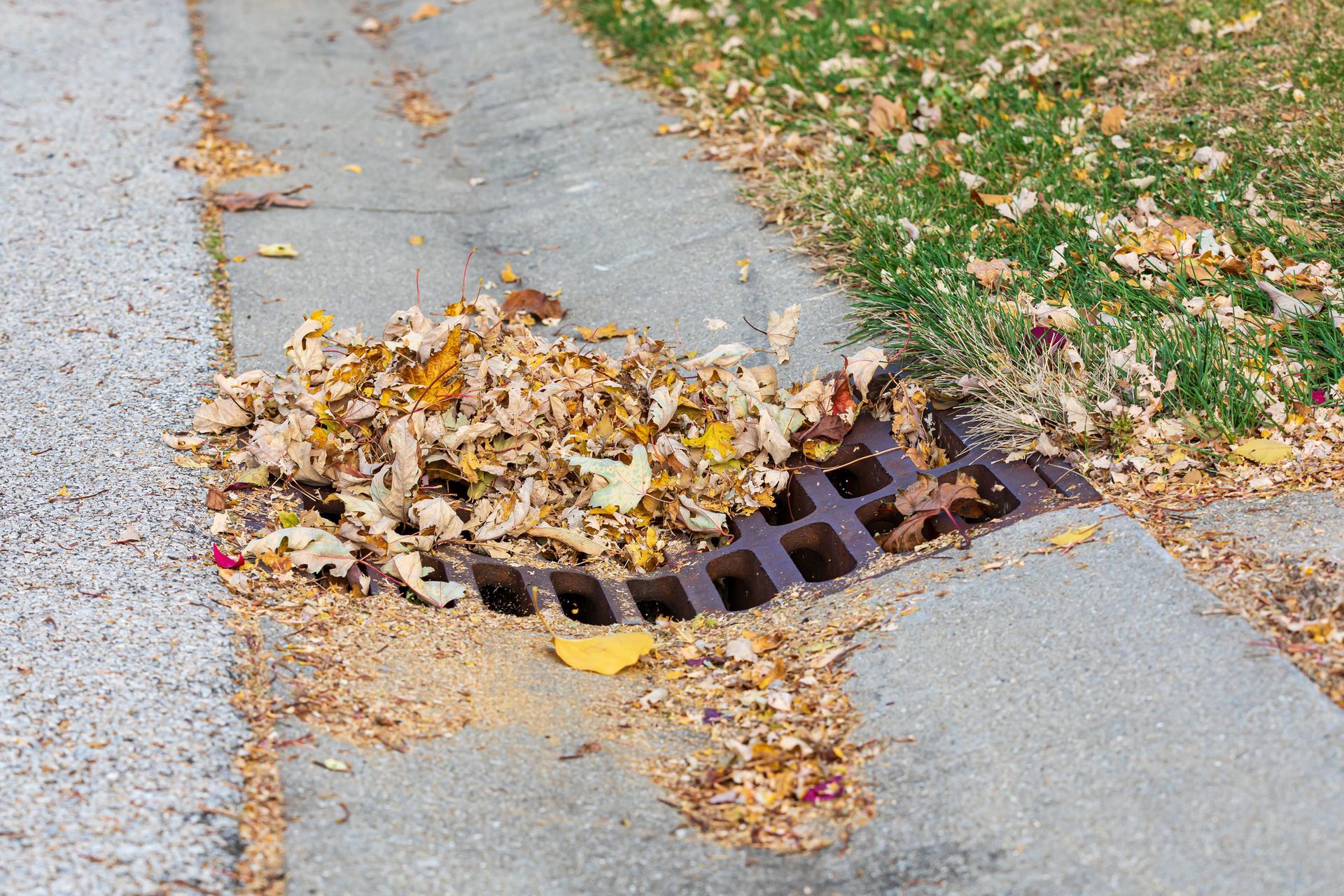
As fall brings cooler temperatures and vibrant foliage, it’s easy to forget that falling leaves can create significant problems for your storm drains. Both residential and commercial properties are at risk, especially when regular maintenance is neglected. In this blog, we’ll discuss the importance of cleaning storm drains, how leaf buildup leads to overflow, and why keeping up with maintenance can prevent expensive repairs. The Problem with Leaf Buildup in Storm Drains Fallen leaves may look harmless, but when they accumulate in storm drains , they create blockages that prevent water from flowing freely. This can cause: Overflowing drains in parking lots Water damage to building foundations and basements Unpleasant smells, especially for commercial properties that haven’t maintained their storm drains in 5+ years Leaf buildup is often forgotten until it’s too late and the water starts overflowing. Regular cleaning is the key to preventing these issues. Why Regular Maintenance is Essential Storm drain maintenance should be conducted at least once a year, or every other year in lower-risk areas. This can include: Camera inspections to check for blockages or damage. Jetting lines to clear out leaves and other debris. Maintenance is especially critical if your home or commercial property sits below street level. Properties at a lower elevation are more susceptible to flooding, and clogged storm drains can make this worse. If your house or business is above street level we recommend you perform storm drain maintenance once every 2 years unless you notice frequent leaf buildup in the storm drain grates on your property. The Dangers of Waiting Too Long All it takes is one large storm for clogged drains to cause a sewer overflow. While overflow often occurs in parking lots, the worst-case scenario involves water backing up into your building’s foundation or basement. This can lead to structural damage, mold, and costly repairs. For commercial properties, water damage can also disrupt business operations and create liability concerns. Property owners who neglect maintenance for five or more years might even notice persistent foul odors, which could indicate significant buildup and the presence of trapped debris or stagnant water. How to Prevent Overflow After a Storm The best way to prevent storm drain overflow is to stay on top of regular maintenance. However, if a storm hits and you suspect your drains may be blocked, it’s important to act quickly: Check for standing water in low-lying areas or parking lots. If you notice an overflow, call a professional to inspect and clear your storm drains immediately. After heavy storms, consider scheduling a post-storm inspection to ensure everything is functioning properly. Protect Your Home and Business With Plumb Works Storm drain cleaning is an easy task to forget, but it’s crucial for avoiding water damage and keeping your property safe. By maintaining your drains yearly or every other year, you can rest easy knowing your property is protected from the dangers of leaf buildup and storm drain overflow. Whether you own a home or a commercial building, regular inspections and maintenance will save you from costly repairs in the future. Don't wait until after the next big storm— schedule your storm drain cleaning with Plumb Works today!

We are excited to announce that Plumb Works has been recognized as the 2024 Residential Contractor of the Year, an accolade that speaks to our unwavering commitment to providing exceptional service and superior workmanship. This accolade, awarded by Plumbing & Mechanical Magzine, is given to contractors that foster long-standing customer relationships, a strong work ethic, and a deep-rooted commitment to quality service. You can read the full article here . What This Award Means to Us At Plumb Works, delivering quality service to our Atlanta community is at the core of everything we do. Our team works diligently to ensure each customer receives reliable, efficient, and friendly service, whether it’s a small plumbing repair or a large-scale project. Receiving the 2024 Residential Contractor of the Year award is a testament to the dedication and expertise of our plumbers, and we are truly honored by this recognition. Our Commitment to You This accolade is a reminder of why we do what we do. We believe that every home deserves dependable plumbing services that leave you confident in your system's performance. Whether you need routine maintenance, emergency repairs, or a complete overhaul, Plumb Works is ready to help. As we celebrate this recognition, we want to thank all of our loyal customers for your trust and feedback. You inspire us to improve and grow every day. Experience Award-Winning Plumbing Services with Plumb Works If you’re looking for a plumbing company that’s as dedicated to customer satisfaction as we are to solving your plumbing problems, look no further. Call Plumb Works today or fill out a form to schedule your next service and see firsthand why we’ve earned the 2024 Residential Contractor of The Year.

On October 13, Jerome Sabol, the award-winning master plumber and owner of Plumb Works, made a return visit to “Lenz On Business,” a one-hour business talk program, which airs weekly on WSB Radio. Sabol dispensed his own brand of tricks and treats by sharing plumbing maintenance suggestions with listeners. Sabol began his conversation with host Jon Waterhouse by sharing a little bit of Plumb Works’ history, how the independent company came to be, and its continued growth through the years. With fall in the air, Jerome discussed seasonal considerations listeners should keep in mind, including pre-winter preparations such as winterizing outside faucets, draining down water lines, becoming aware of shut-off valves, checking water heaters , and other considerations. The most common issue during winter months, he said, would be freezing pipes and water lines in outside walls that homeowners aren’t aware of. According to Jerome, heat pump water heaters are a highly efficient option for homeowners looking to reduce energy costs. In fact, Georgia Power is currently offering rebates to those who install these energy-saving systems, making it a great time to upgrade. Federal tax credits for heat pump water heaters , he said, are also available. Jerome also discussed the recent complications caused by Hurricane Helene and some of the challenges area residents faced in its aftermath. He recommended homeowners prepare for future hurricanes by properly maintaining their storm drains , and making sure they’re clear and functional. Additional topics ran the plumbing gamut from the key elements of commercial plumbing to Plumb Works’ annual maintenance plans, which come with a free inspection each year. Sabol closed the show by sharing advice with aspiring plumbing professionals, pointing them in the right direction on how to best set up their careers for success by attending industry expos, participating in apprenticeships, and more. Schedule a Service With Plumb Works If you have questions or would like to schedule a service visit with a Plumb Works professional, visit the schedule service page or call 404-524-1825.

Jerome Sabol and Josh Czerniak, two key members of the Plumb Works team, joined guest host Belinda Skelton on the July 14 episode of “Lenz On Business,” a one-hour business talk show on 95.5 WSB, Atlanta’s news and talk. One of the city’s leading plumbing companies, Plumb Works has been in business since 1989. The company proudly bears an A-plus rating from the Better Business Bureau. Sabol and Czerniak drew about their knowledge and experience, and chatted about the business and an array of timely issues and practical tips listeners can use. They discussed a range of topics including what listeners can do themselves and what they absolutely need a plumber for. As for the former, Sabol recommended listeners check out the Plumb Works Academy website (PlumbWorksAcademy.com) with its array of how-to videos. Skelton asked the pair about Plumb Works’ annual service contracts and if they’re worth the investment. “It can be very important to have your plumbing system evaluated once a year, and that’s what is included in our service agreement,” Czerniak said. “We’ll walk through your entire home, look under every sink, check your water heater, the temperature of your water, your water pressure, all the ins and outs. It’s like having your vitals done when you go to the doctor.” Other subjects of conversation included the importance of water heater service, summer plumbing renovation dos and dont’s, whole-house water filtration systems, garbage disposals, underground leak detection, and much more. Schedule a Plumbing Service With Plumb Works If you have questions or would like to schedule a service visit with a Plumb Works professional, visit the schedule service page or call 404-524-1825 .


